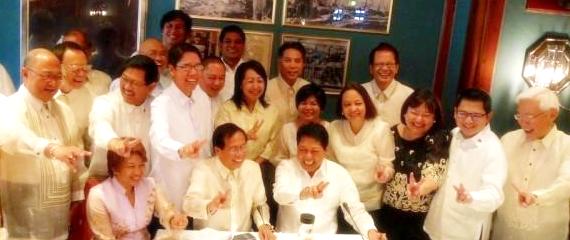CCA Congratulates the initiatives of Philippines Peace Process

The Christian Conference of Asia (CCA), in a statement issued today, congratulated the unprecedented initiative by the Government of the Republic of Philippines ( GRP) and the rebel insurgents’ political wing, the National Democratic Front (NDF), agreeing to implement unilateral, indefinite ceasefire as a remarkable achievement of the recent peace process mediated by Norway.
While expressing CCA’s joy in upholding the spirit of the peace process, CCA General Secretary Dr. Mathews George Chunakara said, “The spirit of the intention and aspirations for a genuine peace should be upheld”. He stated that the initiative of the Government of the Republic of the Philippines and the National Democratic Front for engaging in the first round of peace talks and their genuine efforts that led to the successful signing of a historic joint declaration are remarkable achievements.
CCA General Secretary further said that, “It is our sincere prayer and hope that the six agreements reached between the GRP and NDF, including the reaffirmation of previous agreements, the release and amnesty of political prisoners, and a call by the Communist Party of the Philippines (CPP) for a unilateral ceasefire indefinitely by the New People’s Army (NPA), will lead to more meaningful negotiation for a lasting peace in the country”.
“CCA recognizes the role of churches and the ecumenical movement in the Philippines over the years in witnessing and accompanying the oppressed and marginalized sectors of Philippine society, including the peasants, workers, indigenous peoples, students, women and migrant labourers in their struggle for a just and peaceful society. CCA looks forward to the GRP and the NDF panels meeting again in October 2016 for their second round of peace talks, and sends our best wishes for both parties to reach a successful political settlement to resolve the longstanding armed conflict”, he added.
The statement of CCA also expressed it’s concern about the situation of the rapid rise of extrajudicial executions committed by security forces and death squads. More than 1,700 Filipinos, suspected drug traffickers and drug users, were summarily killed during the past two months ever since the new President came to power on 1 July 2016.
The rebellion launched in late 1960s and the ongoing insurgency claimed the lives of thousands of people in the country during the past forty-seven years.
Click here to Read the Full Text of CCA General Secretary’s Statement
Philippines Peace Process CCA General Secretary Statement










